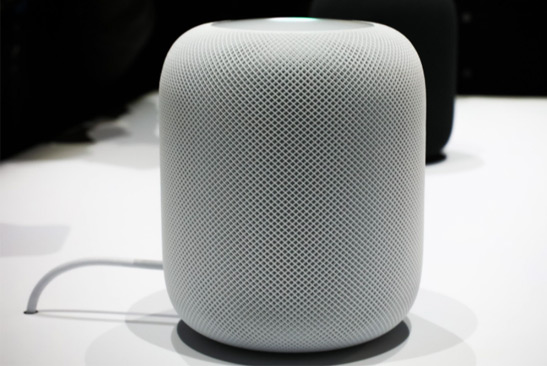
The Apple HomePod is one of many “smart” devices on the market today that use Artificial Intelligence.
The rate at which technology is evolving is truly startling. Things we currently take for granted as part of our daily life are being revolutionised and modified to perform an ever-greater range of tasks, all in a pursuit to make our lives easier…
And that they do. Take cars for example… For over a century now, they have served as a means from getting us from A to B – some faster and slower than others – but now their utility is set to take on another dimension.
Self-driving cars are now a very real prospect and would relieve humans of the logistics of driving almost entirely. Google just last week announced they would introduce another 62,000 autonomous cars – branded “Waymo” – to their fleet by the end of 2018.
There are also rumours that Waymo will team up with Uber in the near future, which would see the two multinationals seek to further stimulate the driverless car market.
The “smart” age
Whether or not you are skeptical of the practical implementation of self-driving cars, one must marvel at the giant leaps technology has taken in the field of Artificial Intelligence, for this is the science behind driverless cars (as well as many other tech products).
Artificial Intelligence research is defined as “the study of any device that perceives its environment and takes actions that maximise its chance of successfully achieving its goals”. In simple terms, using cameras, sensors, statistical data, algorithms and other stimuli to enhance user experience, optimise efficiency or simply do things we humans don’t want to do.
Evidence of this phenomenon is now fairly commonplace. Smartphones, smart televisions, smart refrigerators and even smart vacuum cleaners are part and parcel of many people’s daily lives, to such an extent that we might now have to admit to a certain dependency on this technology.
The “smart speaker” war
One such device is the smart speaker, which is a household audio speaker… with a twist. It is wireless – it connects to your domestic Wi-Fi connection – and has an integrated virtual assistant that carries out certain voice-activated commands: for example, audio playback and requests for news updates.
This means you can be cooking dinner, watching TV or doing the washing-up and at the same time telling your smart speaker device exactly what song you want to hear. Some more advanced systems can even be used to control other smart home automation systems, such as lighting, temperature and appliances.
Google, Amazon and Apple all have their respective smart speaker products; the former making it into the news last week after retail giants El Corte Inglés accidentally posted Google Home on their online shop ahead of its proposed Spanish launch date.
Amazon Echo is currently the best-selling smart speaker on the market, with an expected global market share of over 50% by the end of 2018, while Apple’s HomePod (an extension of the mobile virtual assistant Siri) is an ever-improving platform that is enjoying increased commercial success.
However you choose to deck out your Costa del Sol home, there will be an increasing number of AI products on the market in the coming months and years which will allow you to integrate hi-tech wizardry into your household decoration.
 en
en



 Vlaams-Nederlands
Vlaams-Nederlands
0 Comments
Leave a Comment
DISCLAIMER
The opinions and comments expressed by contributors to this Blog are theirs alone and do not necessarily reflect the views of VIVA Homes Under the Sun Ltd, any of its associated companies, or employees; nor is VIVA to be held responsible or accountable for the accuracy of any of the information supplied.
Have you got something to say?